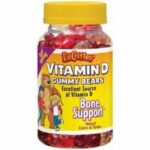In the realm of sports and athletics, achieving peak performance isn’t just about training hard; it’s also about ensuring your body receives the essential nutrients it needs to function optimally. While a balanced diet is fundamental, many athletes turn to vitamin supplements to fill potential gaps and enhance their overall health and performance. This guide explores the benefits of vitamin supplements specifically tailored for athletes, addressing common questions and concerns along the way.
Understanding Vitamins and Their Role in Athletic Performance
Vitamins are organic compounds that play crucial roles in various physiological processes. They are essential for energy metabolism, immune function, tissue repair, and overall health. Athletes, due to their increased physical demands, may have higher requirements for certain vitamins compared to the average person.
Common Vitamins Athletes Should Consider
Athletes may benefit from several key vitamins that support their performance and recovery. These include:
- Vitamin D: Important for bone health, muscle function, and immune system support.
- Vitamin C: A powerful antioxidant that aids in immune function and collagen synthesis.
- B Vitamins (B1, B2, B3, B6, B12): Essential for energy metabolism, red blood cell production, and nerve function.
- Vitamin E: Supports immune function and acts as an antioxidant.
- Vitamin A: Important for vision, immune function, and skin health.
- Vitamin K: Necessary for blood clotting and bone health.
- Vitamin B9 (Folate): Important for DNA synthesis and red blood cell formation.
FAQs About Vitamin Supplements for Athletes
How do I know if I need vitamin supplements as an athlete?
As an athlete, your nutritional needs can be higher than those of the average person due to increased physical demands. Factors such as your training intensity, dietary habits, and individual health status play a role. Consulting with a registered dietitian or healthcare provider can help assess whether supplements are necessary based on your specific circumstances.
Can’t I get all the vitamins I need from my diet alone?
A well-balanced diet rich in fruits, vegetables, whole grains, lean proteins, and healthy fats should ideally provide most of the vitamins your body needs. However, certain situations like heavy training schedules, restrictive diets, or specific health conditions may increase your risk of vitamin deficiencies. In such cases, supplements can help fill potential gaps.
Is it safe to take vitamin supplements?
When taken as directed and in appropriate doses, most vitamin supplements are safe for healthy individuals. It’s important to choose supplements from reputable brands that undergo third-party testing for quality and purity. Always follow the recommended dosage instructions unless otherwise advised by a healthcare professional.
Should I take individual vitamins or a multivitamin?
The choice between individual vitamins and multivitamins depends on your specific needs and circumstances. Multivitamins can provide a convenient way to cover multiple bases, but they may not always provide optimal doses for athletes with higher requirements. Individual vitamin supplements allow for more targeted supplementation based on your individual needs.
Are there any vitamins that can improve athletic performance directly?
While vitamins support overall health and function, few have direct performance-enhancing effects in isolation. However, deficiencies in certain vitamins (like vitamin D or iron) can impair performance and addressing these deficiencies through supplementation may lead to improvements in energy levels and overall performance.
Can vitamin supplements prevent injuries in athletes?
Vitamins play roles in maintaining bone health, muscle function, and immune function—all of which contribute to injury prevention indirectly. However, supplements alone cannot prevent injuries. A well-rounded approach that includes proper training, adequate rest, and balanced nutrition is essential for injury prevention.
What should athletes consider when choosing vitamin supplements?
Athletes should consider factors such as quality, dosage, form (e.g., capsule, tablet, liquid), and third-party testing when selecting supplements. Look for supplements that are free from unnecessary additives and allergens, and preferably certified by organizations like NSF International or USP for quality and purity.
Can vitamin supplements help with recovery after exercise?
Certain vitamins, such as vitamin C and E, have antioxidant properties that may aid in reducing exercise-induced oxidative stress and promoting faster recovery. Additionally, vitamins involved in protein synthesis and tissue repair (e.g., B vitamins) can support the body’s recovery processes when taken as part of a comprehensive recovery plan.
Are there any risks or side effects associated with vitamin supplements?
While most vitamins are generally safe when taken within recommended doses, excessive intake of certain vitamins can lead to toxicity and adverse effects. For example, high doses of vitamin A can be toxic to the liver, while excessive vitamin C intake may cause gastrointestinal disturbances. It’s important to follow dosage recommendations and consult with a healthcare professional if you have any concerns.
How should athletes incorporate vitamin supplements into their routine?
Ideally, vitamin supplements should complement a well-balanced diet rather than replace it. Work with a registered dietitian or healthcare provider to identify any specific deficiencies or needs you may have. Timing of supplementation can also be important; for example, some vitamins may be best taken with meals to enhance absorption.
Conclusion
In conclusion, while vitamin supplements can be beneficial for athletes by supporting overall health, performance, and recovery, they should be used judiciously and in conjunction with a balanced diet and proper training regimen. Understanding your individual needs and consulting with healthcare professionals can help you make informed decisions about which supplements, if any, are right for you. Remember, supplements are meant to supplement—not substitute—for good nutrition and lifestyle practices
- Sculptra Surrey – Collagen Stimulation Therapy Near Shirley, Surrey - May 23, 2025
- What Does 1ml Of Cheek Filler Look Like? - May 22, 2025
- Tear Trough Filler – Under Eye Filler Near Oxshott, Surrey - May 22, 2025




